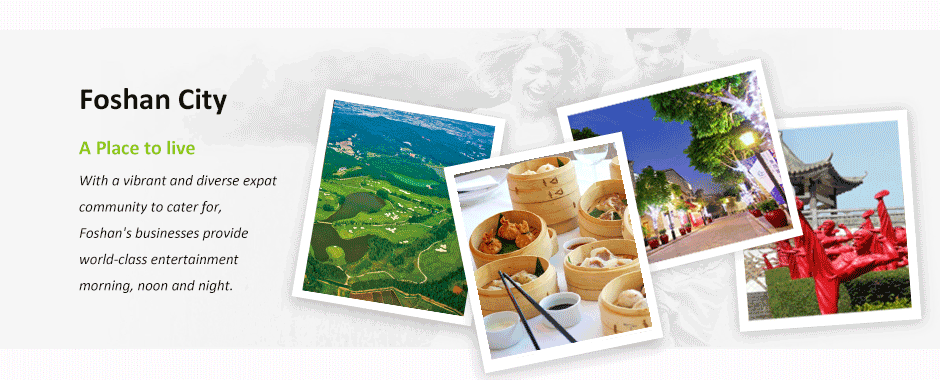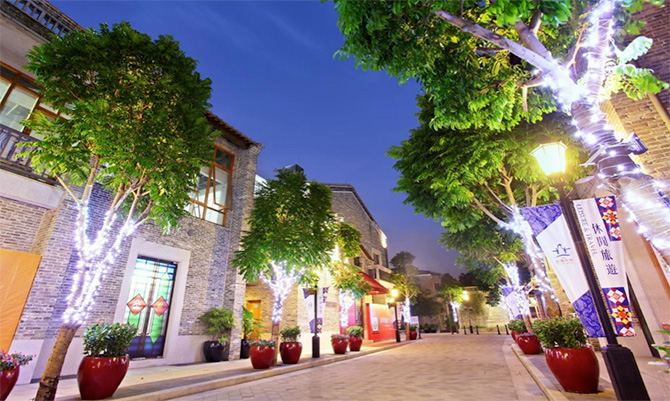
“Foshan is not a city that you miss when you leave; it is a city that says: ‘You are missing from me.’ It’s really that comfortable.”
– Delcia Roper, South Africa
According to internal statistics, Foshan is home to many foreign expats working in a wide variety of industries. It is not only their occupational differences that define them; Foshan’s foreign community crosses continents. In order to appeal to such a broad spectrum of citizens, Foshan city offers a vibrant and varied lifestyle, in keeping with its position as one of the world’s most dynamic cities.
Historically, Foshan has been reputed as homes of ceramic crafts, Cantonese Opera and Cantonese cuisine.
Nowadays, the city is one of the cultural and industrial hubs of China. To promote the creation of a “Smart City” with “intelligent” transport, infrastructure and local culture, the Foshan City Government has proposed plans for a cleaner, greener and higher quality of living in Foshan. Beginning with the pioneering Foshan New City, Foshan aims to create a sustainable, “smart” environment based on modern service industries, rather than production and manufacturing.

Creative Industrial Park, Jihua 4th Road, Chancheng
The close proximity of Hong Kong and Macau has not only allowed Foshan to develop as an innovative economic centre, but also as a meeting point for eastern and western cultures. As one of “the top mainland destinations with the highest concentration of foreign direct investment”, Foshan’s local economy and culture has benefited from an influx of foreign brands, companies and private investors.
“Foshan is the perfect expat town. It’s like a home away from home.”
– Shubham Mehrotra, India
Dim Sum: Cantonese Cuisine
Foshan is famous for its dim sum, the Chinese answer to Spanish Tapas. Dim sum can be anything from chicken feet to fried dumplings, a particular favourite in the expat community. Though many restaurants will serve dim sum dishes late into the night, it is most common to see dim sum around noon for morning tea.

Traditional Cantonese Dim Sum
Little Italy: Which One?
Before moving to China, many westerns worry about struggling to adapt to Chinese cuisine.. In Foshan, one does not need to go far to find familiar food. Italian food has become particularly popular among the local Chinese. In nearly every “Western” restaurant, pizza will be an option. It has become so popular in fact, that there are three “Little Italy” restaurants, and dozens of pizzerias or pasta houses scattered across Foshan.
Titanic: A Briton Away From Home
Foshan is also home to a British restaurant, which may confuse any Brits who pass in its direction. What is British food? According to the owner of Titanic, it’s a roast dinner every Sunday and anything you want in between. Titanic serves a wide variety of non-Chinese cuisine, from full English breakfast, baguettes and sandwiches to traditional Italian dishes.
“Foshan is the best of both worlds. It’s like a big city, but without the noise and pollution.”
– Richard Santana, United States
Foshan By Night
Foshan has a wide variety of nightlife. From the chic streets of Ling Nan Tian Di to the stages of Foshan’s nightclubs, there is something to cater to every taste in Foshan. For the more western tastes, there are many expat bars along Tongji Lu and the Zumiao area. For those wishing to try something a little more local, KTV Karaoke is hugely popular in Foshan, as it is across China.
Foshan’s location is strategic both from an economic and a geographic viewpoint.
The City is situated at the heart of the Pearl River Delta region in Guangdong province – a global economic powerhouse that is traditionally at the forefront of the opening up and reform process. Foshan is located next to Guangzhou and is only a 3-hour drive from Shenzhen, Hong Kong and Macau. Within its commercial infrastructure are several trading platforms that allow businesses to connect with key suppliers and potential customers. Foshan is also one of the most cost-effective locations in South China and it is an ideal spot for regional operations.
The Pearl River Delta is formed by Foshan, Guangzhou, Shenzhen, Dongguan, Huizhou, Jiangmen, Zhaoqing, Zhongshan, Zhuhai and Hong Kong and Macao Special Administrative Regions.
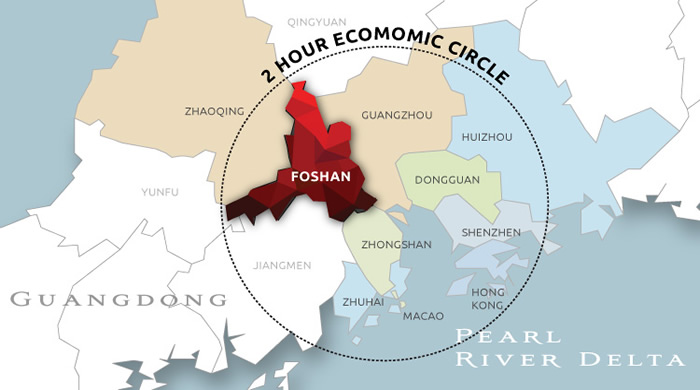
Foshan is located at the heart of the Pearl River Delta with direct access to major ports and global shipping routes
- Fung Global Institute, 'The Growth of Foshan: A Tale of State and Market'
Did you know?
- Foshan covers a total area of 3,797.72 km2.
- Foshan downtown is only one hour away from Guangzhou New Baiyun Airport, Guangzhou Railway Station and Nansha Port.
- In 2013, Guangdong’s GDP reached USD 1.03 trillion, which is larger than the GDP’s of Austria, Norway and the Netherlands.
- If it were a separate country, Guangdong would rank as the world’s 16th largest economy behind Mexico and South Korea.
- The Pearl River Delta is China’s manufacturing center and Guangdong is China’s top export hub.
- Foshan is one of the most important trading centers in the Pearl River Delta, with several global trading platforms in the City.
- Foshan is less than 3 hours away from Hong Kong by railway, highway or sea transportation.
- Property costs in Foshan are lower than in Shenzhen and Guangzhou, which is yet another reason that makes Foshan a great cost-effective location.
Foshan’s solid and modern infrastructure makes it a great choice for setting up your business
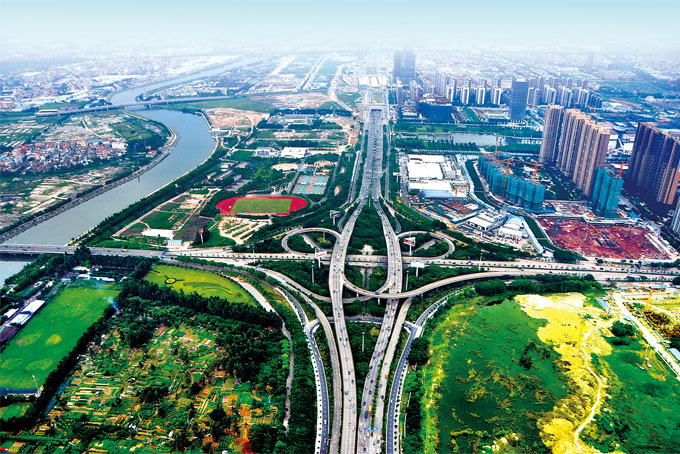
Over 5000 kilometers in highways
Foshan is one of the most important transportation hubs in the Pearl River Delta Region. Expressways linking Guanghzou with Foshan, Zhuhai, Zhanjiang, Zhaoqing, crisscross over the city, in addition to an expressway linking Foshan with Kaiping. As part of the Greater Guangzhou-Foshan metropolitan area, Foshan shares transportation and telecommunication systems with Guangdong’s capital. Highways and railway systems in Foshan have also been upgraded recently.
An exceptional railway system
Foshan is connected to the national railway network through the Guangzhou-Zhanjiang Railway. The Guang-Fo Metro is China’s first intercity subway line and, since its opening in 2011, it has reduced the travel time between Guangzhou and Foshan to less than 40 minutes. There are daily trains connecting Foshan and Hong Kong (Hung Hom Station). The Guangzhou – Zhuhai railway has improved Foshan’s access to Zhongshan, Zhuhai, and Macao. Nanguang Rail, Fo-Zhao intercity rail. Sev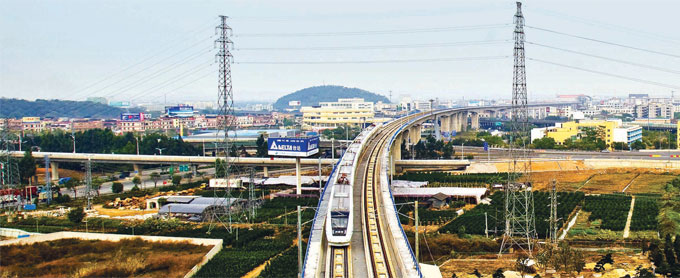 eral new projects are currently under construction, such as the second phase of the Guang-Fo Metro, Foshan-Zhaoqing Intercity Rail and Foshan West Station.
eral new projects are currently under construction, such as the second phase of the Guang-Fo Metro, Foshan-Zhaoqing Intercity Rail and Foshan West Station.
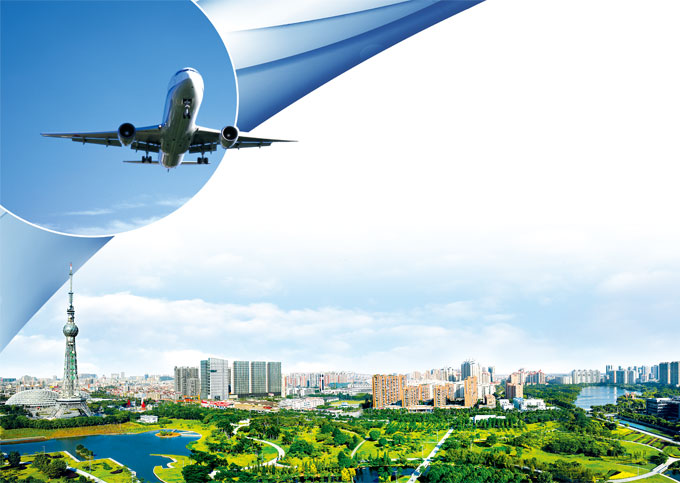
“Only 40 minutes away from the world”
Foshan airport services five domestic airlines. Guangzhou Baiyun International Airport is only a thirty-five minute drive from Foshan via Airport Expressway. The airport has an average annual passenger flow volume of about 25 million and connects Guangzhou with over 100 cities around China and the world. The annual cargo volume handled in the airport is over 1 million tons.
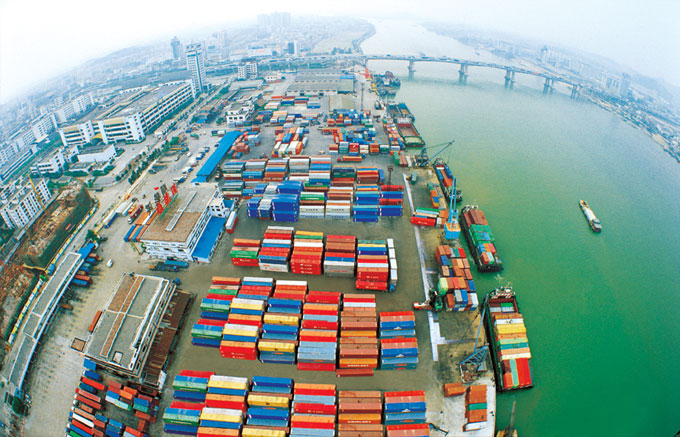
A trade-focused Sea Transportation System
Study Mandarin in Foshan | Edward Chinese School

